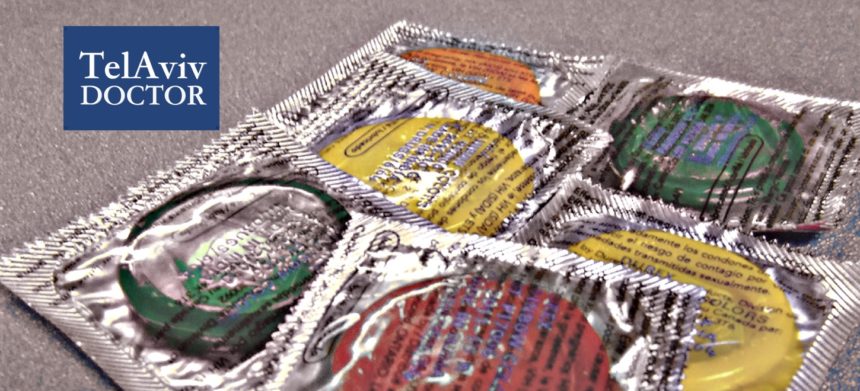We handle many requests for STD tests, in these times of Tinder, Grindr and other ‘hook up’-platforms. Here’s what we talk about when we talk about Sexually transmitted infections (STIs) or Sexually Transmitted Diseases (STDs). They are prevalent, despite a lot of people having at least some awareness of these problems.
Many people nowadays think of STIs (Sexually Transmitted Infections) as an inconvenience leading to an inevitable course of antibiotics and the problem is sorted – except this is far from true.
Not going for a test following unprotected sex can cause huge problems down the line, especially for women, who may not know they contracted an infection until they try to conceive. The long-term effects of some infections, though seemingly minor in their symptoms, can be devastating and life changing. This is a great shame, because infections that can do this (like Chlamydia) are usually easily treated with a course of antibiotics.
On the flip side, there are problems which show themselves with very painful symptoms, and here I am talking namely about genital herpes. It would be difficult to not be aware of having genital herpes – and that’s a good thing.
Genital Herpes – No Cure Just Management Of Symptoms
While not technically curable, treatment with anti-viral medication early on in an attack can shorten its duration and severity, but it’s important to know that you cannot eradicate genital herpes, and there is a risk of transmitting to others. This includes risk of transmission from mother to the newborn baby, which can be very serious.
Human Papilloma Virus (HPV) – Also No Cure
Another condition generally viewed as incurable is caused by infection with the Human Papilloma Virus (HPV), causing unsightly genital warts. You may have heard about HPV in the context of cervical cancer. It is important to know that there are many types of HPV, and the main culprit for genital warts (type 6 and 11) are felt to be low risk for causing cancer.
The HPV vaccine Gardasil, which includes protection against these two main strains of HPV that cause warts, as well as the two main ones that cause cervical cancer, was introduced some years ago. It is not useful once a person has become sexually active, as they will more than likely to have been exposed to HPV at that point.
The wart virus can be cleared by the immune system, but generally treatment with a topical solution applied to the wards or by freezing them is the only treatment we have to offer. This is very uncomfortable and still leaves the possibility to transmission to another person during sex. Unfortunately warts often recur.
HIV – Still Not Curable
Often when we talk about sexually transmitted infections, people will think about HIV. HIV (the Human Immunodeficiency Virus) was first talked about in the early 1980s, when the medical profession documented unusual cases of cancer and severe infections in gay men in America. It was later found that these men had a problem with their immune systems, causing the serious symptoms we associate with AIDS (Acquired Immune Deficiency Syndrome). The cause of AIDS, the HIV virus, was first recognized several years after the emergence of these cases, and our knowledge about HIV has been expanding steadily since then.
When HIV was first discovered, it seemed that the whole world was terrified. We didn’t understand the condition as much as we do today. Previously it was a widely held belief that HIV was a disease of homosexuals. We now know of course, that anyone, regardless of sexual orientation could contract HIV. However, men who have sex with men (gay or bisexual) are felt to be at higher risk. Those who inject drugs intravenously are also at higher risk, and the prevalence of HIV is much higher in certain areas of the world, such as sub-Saharan Africa.
Fortunately, HIV though not curable, is treatable today with anti-retroviral drugs, and now is considered very much like any other chronic disease.
Syphilis – Re-emerging
Another condition that deserves a mention is syphilis. Like chlamydia and gonorrhea, syphilis is a disease that is usually treatable. aIt is a disease that went into decline but has shown a re-emergence and like many other diseases can have life changing consequences later in life, causing serious problems with the nervous system often decades later. It can also cause serious problems during pregnancy and in the newborn baby if left untreated, and so screening for the disease is offered in pregnancy in some countries.
The initial symptoms are usually of a painless sore on the genitals that may heal spontaneously without treatment followed by later development of a characteristic rash on the palms and soles of the feet. There may also be non-specific feelings of malaise with swollen glands, weight loss, fatigue and headaches. Later there may be no symptoms and infection can lie dormant in the body before causing problems many years later.
Staying safe while having fun …
It is of course important to remember that sex is a normal and healthy part of human life, and is there to be enjoyed. We all make mistakes and have poor judgement from time to time.
If you get yourself into a situation whereby you think you might have picked something up, get it checked, before you cause yourself and others more problems. You will always be treated in confidence, and once you’ve sorted things out you can move on with your life.
… and get it checked, if you suspect something!
Always use a condom with a new partner or in a casual encounter for all forms of sexual activity- vaginal, anal and oral. You cannot tell whether someone has an infection or not by lack of symptoms, the job they have, that they are married or through any other preconceived ideas.
Common symptoms of an STI can be discharge, pain on urination and skin changes. However, symptoms can be wide ranging and if you have had unprotected sex, get checked with your doctor, regardless of whether you have symptoms or not.
Here’s a few more misconceptions and thoughts on the topic:
- If you use the Pill or coil as a form of contraception- this is designed only to reduce chances of falling pregnant. You will still be able to pick up any infection.
- Remember that condoms do not necessarily protect against contracting genital warts or herpes. Condoms also can be damaged and have an expiry date, so check these things to ensure they are effective.
- Don’t engage in oral sex if either party has a cold-sore or has an impending cold sore.
- Remember that excess alcohol and/ or recreational drug use can reduce your inhibitions and put you in situations whereby you might take more risks with your health.
If you are found to have an STI, ensure you adhere to treatment plans and get checked that you have been cured (if applicable) before engaging in further sexual activity. You will also be advised to contact any sexual contacts in order that they seek treatment.
For fast and professional STI testing and medical council book an appointment online – or call us at 054 941 42 43.



